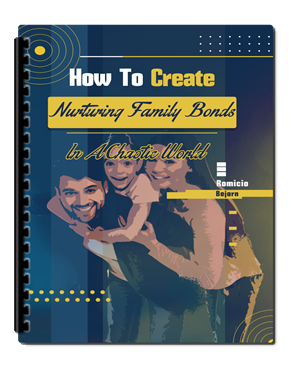Divorce changes everything—from your living arrangements to your daily routines—and when kids are involved, it can feel overwhelming.
The end of a marriage doesn’t mean the end of parenting together, though. It just means parenting looks different.
Many divorced parents struggle to figure out how to share responsibilities without constant conflict.
Co-parenting peacefully after divorce is possible. It takes effort, patience, and a clear focus on your child’s well-being.
Get ready to learn 12 ways to co-parent peacefully after divorce. These aren’t just ideas pulled from thin air.
They are strategies rooted in real-life examples, best practices, and proven approaches that help divorced parents build a respectful, cooperative parenting partnership.
If you’re searching for the best ways to co-parent without drama, you’re in the right place.
1)) Put Your Child First Every Time
The first and most important rule of co-parenting is simple: keep your child’s needs at the center.
Divorce often brings up feelings of resentment, anger, or even guilt. But when decisions revolve around your child’s best interests, everything else becomes secondary.
Child-Centered Best Practices:
- Ask yourself before making any decision: Is this choice best for my child, or is it about me?
- Avoid putting your child in the middle of adult disagreements.
- Respect your co-parent’s role in your child’s life, even when you don’t agree with their approach.
When both parents commit to a child-first mindset, peaceful co-parenting becomes easier. Your child feels loved, secure, and supported by both households.
2)) Communicate Clearly and Respectfully
Communication often breaks down after a divorce. But if you’re going to co-parent successfully, you need to establish new ways of talking that avoid unnecessary drama.
Think of your co-parent like a business partner: your “business” is raising healthy kids.
Checklist for Clear Communication:
- Keep messages brief and factual.
- Use tools like email, co-parenting apps, or shared calendars to reduce misunderstandings.
- Stick to the topic of parenting—avoid old arguments or personal issues.
- Respond promptly, especially about important child-related updates.
This approach keeps communication functional and respectful, even when emotions run high. It also models positive behavior for your child.
3)) Create a Consistent Parenting Schedule
Kids thrive on stability. A predictable routine reduces stress and helps them adjust to life after divorce.
Creating a clear, consistent parenting schedule is one of the best ways to co-parent peacefully.
Scheduling Tips for Divorced Parents:
- Keep routines similar in both households (bedtimes, homework times, screen limits).
- Use shared calendars or apps so both parents can see the same schedule.
- Avoid frequent changes unless necessary.
- Factor in school events, extracurriculars, and special occasions.
A reliable schedule makes children feel secure and prevents last-minute disputes between parents.
4)) Keep Boundaries and Respect Space
Boundaries are essential after divorce. Both parents need to understand and respect the new dynamics. Without boundaries, conflicts can escalate quickly.
Boundaries to Set for Peaceful Co-Parenting:
- Agree not to enter each other’s homes uninvited.
- Avoid questioning your child about your ex’s personal life.
- Respect each parent’s household rules, even if they differ slightly.
- Limit communication to parenting matters only.
Healthy boundaries create mutual respect and reduce unnecessary tension.
5)) Stay Flexible When Needed
While consistency is important, life doesn’t always go as planned. Kids get sick, work schedules change, and unexpected events pop up.
Successful co-parenting requires flexibility and understanding.
Flexibility Hacks for Parents:
- Have a backup plan for emergencies.
- Be willing to trade days when necessary.
- Avoid using schedule changes as leverage or punishment.
- Keep communication open about changes, so no one is blindsided.
Flexibility shows your child that cooperation—not conflict—comes first.
6)) Present a United Front
Children do best when parents present a consistent, united front. That doesn’t mean you have to agree on everything.
It means your child shouldn’t see division or feel like they can play one parent against the other.
Parenting Unity Ideas:
- Agree on core rules (homework expectations, bedtime, curfew).
- Discuss discipline privately and present decisions together.
- Avoid badmouthing each other in front of your child.
- Support your child’s relationship with the other parent, even if it’s hard.
When kids see both parents working together, they feel secure and loved.
7)) Handle Conflict Privately
Conflict is inevitable. But how you handle it makes all the difference. Arguing in front of your child—or worse, involving them—creates stress and insecurity.
Conflict Management Strategies:
- Take disagreements offline—never argue at exchanges or school events.
- Use written communication for sensitive issues to avoid heated words.
- If conflict escalates, consider a mediator or counselor.
- Keep conversations child-focused, not about past marital issues.
Peaceful co-parenting isn’t about avoiding conflict entirely. It’s about managing it respectfully.
8)) Respect Your Child’s Relationship with the Other Parent
Your child loves both parents. When you speak negatively about your ex, you hurt your child more than your co-parent.
Respecting and supporting your child’s bond with the other parent is one of the best ways to co-parent peacefully.
Ways to Encourage Positive Relationships:
- Never ask your child to choose between parents.
- Support visitation and transitions, even when inconvenient.
- Encourage your child to share experiences from the other household.
- Celebrate the fact that your child has two loving homes.
This builds trust with your child and fosters a healthier family dynamic.
9)) Share Important Information
Sharing information openly prevents confusion and ensures your child’s needs are met.
From school updates to medical appointments, keeping both parents informed shows cooperation and maturity.
Information-Sharing Checklist:
- School progress reports and parent-teacher meetings
- Health concerns, doctor visits, and medication updates
- Extracurricular activities and sports schedules
- Travel plans and family events
Transparency creates trust and avoids unnecessary conflicts.
10)) Prioritize Self-Care
Co-parenting peacefully requires emotional balance. If you’re burned out, stressed, or overwhelmed, your ability to cooperate will suffer. That’s why self-care is not selfish—it’s necessary.
Self-Care Ideas for Divorced Parents:
- Join a support group or therapy to process emotions.
- Maintain healthy routines (exercise, sleep, balanced diet).
- Set aside time for hobbies and relaxation.
- Surround yourself with positive friends and family.
When you take care of yourself, you’re better equipped to show up as the calm, supportive parent your child needs.
11)) Keep the Long Game in Mind
Co-parenting is not just about surviving the next custody exchange. It’s about raising your child over the long haul.
Keeping a future-focused perspective helps reduce petty arguments and keeps everyone aligned.
Future-Focused Practices:
- Talk about long-term goals for your child (college, career, values).
- Prepare for milestones you’ll both share—graduations, weddings, birthdays.
- Recognize that peaceful co-parenting now builds a healthier adult child later.
- Focus on cooperation over competition.
This mindset helps both parents work toward shared goals without constant battles.
12)) Seek Professional Support When Needed
Sometimes, co-parenting challenges are too difficult to handle alone. There’s no shame in seeking outside help.
Professionals can provide tools, strategies, and neutral ground to help parents move forward.
Resources for Co-Parenting Success:
- Co-parenting counseling sessions
- Mediation services for resolving disputes
- Parenting classes and workshops
- Online co-parenting communities and apps
Getting support shows your commitment to making co-parenting work, not weakness.
Conclusion
Co-parenting after divorce isn’t always easy. It requires patience, maturity, and a willingness to put your child’s needs above everything else.
But with the right mindset and tools, peaceful co-parenting is absolutely possible.
Your child deserves two loving, supportive parents—even if you’re no longer together.
By following these 12 ways to co-parent peacefully after divorce, you can create a healthy, stable environment that benefits your child for years to come.
If you’re ready to move forward, start small. Choose one or two strategies from this list and put them into practice this week.
Over time, these small steps will transform how you and your co-parent work together—and your child will reap the rewards.
Download Our Free E-book!







